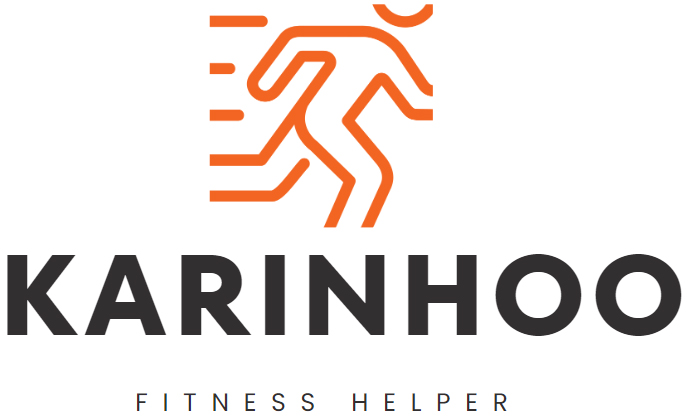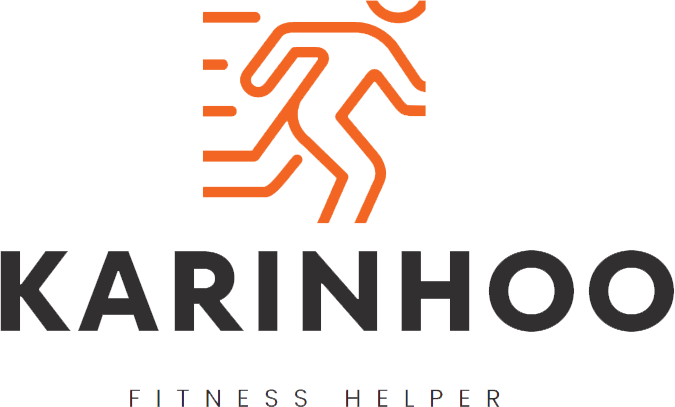The Role of Marathon Running in Weight Management
The Benefits of Marathon Running for Weight Management
Marathon running offers numerous benefits when it comes to effective weight management. Not only is it a challenging and rewarding endurance activity, but it also helps individuals shed unwanted pounds and maintain a healthy weight. By incorporating marathon training into your weight loss journey, you can achieve remarkable results and enjoy a sustainable lifestyle change.
Marathon running is an excellent way to burn calories and increase your overall energy expenditure. During a marathon, your body engages in intense physical activity, which promotes significant calorie burn. On average, an individual weighing around 150 pounds can expect to burn approximately 100 calories per mile. This calorie expenditure increases with faster running speeds and longer distances.
Furthermore, marathon training helps to boost your metabolism. The intense exercise involved in marathon running not only burns calories during the activity itself but also elevates your metabolic rate for hours after your run. This means that even after you’ve completed your marathon training session, your body continues to burn calories at an accelerated rate, aiding in weight loss and management.
Participating in marathon running also promotes fat loss and muscle toning. As you consistently engage in long-distance running, your body primarily utilizes fat as a fuel source. This, in turn, helps to reduce body fat percentage and improve overall body composition. Additionally, marathon training requires significant leg and core strength, which helps to build lean muscle mass, further boosting your metabolism and aiding in weight management.
Moreover, marathon training provides mental and emotional benefits that contribute to effective weight management. Engaging in regular running promotes stress reduction and enhances overall well-being. It releases endorphins, which are natural mood boosters, and reduces cortisol levels, known as the stress hormone. This helps to curb emotional eating tendencies and promote a more positive mindset towards weight loss goals.
To maximize the weight management benefits of marathon running, it is crucial to maintain a balanced approach. Proper nutrition and hydration play a fundamental role in fueling your body for training and recovery. Ensure that your diet includes a variety of nutrient-rich foods that provide the energy and nutrients necessary to support your marathon training and weight management goals.
Marathon running is a powerful tool for effective weight management. It offers a range of physical, metabolic, and psychological benefits that contribute to the shedding of unwanted pounds and the maintenance of a healthy weight. By incorporating marathon training into your weight loss journey and adopting a balanced approach to nutrition, you can achieve remarkable results and enjoy long-lasting weight management success. Start pounding those pavements today and embark on a fulfilling marathon running experience!
Key Factors for Effective Weight Loss during Marathon Training
Marathon training is not only a challenging endeavor but also a highly effective way to shed pounds and manage weight effectively. However, to maximize weight loss during this rigorous process, there are several key factors that marathoners should pay attention to. By incorporating these factors into their training regimen, runners can optimize their weight loss efforts and achieve their desired results.
One crucial aspect of effective weight loss during marathon training is nutrition. It is essential to fuel your body with the right balance of nutrients to ensure optimal performance and support weight loss. A diet rich in lean proteins, whole grains, fruits, and vegetables is key. These foods provide the necessary energy for long runs while also supplying essential vitamins and minerals. It is also important to stay hydrated by consuming an adequate amount of water throughout the day. Proper nutrition will not only enhance your running performance but also help you shed those extra pounds.
Another important factor to consider is the intensity and duration of your training sessions. To lose weight effectively, it is crucial to find a balance between pushing yourself and avoiding overexertion. High-intensity interval training (HIIT) can be particularly effective for weight loss as it boosts metabolism and burns calories even after your workout is complete. interval runs into your training plan can help you achieve your weight loss goals more efficiently.
Consistency is key when it comes to weight loss during marathon training. It is crucial to stick to a regular training schedule to ensure that you are burning calories consistently and making progress towards your weight loss goals. Aim for a minimum of three to four training sessions per week, ensuring that you include a mix of long runs, speed intervals, and recovery runs. By maintaining this consistency, you will not only maximize your weight loss potential but also build stamina and endurance for the marathon itself.
In addition to running, strength training is an essential component of an effective weight loss plan. strength exercises such as squats, lunges, and planks into your routine can help build muscle mass, which in turn boosts metabolism. Strength training also improves overall body composition, helping you achieve a leaner and more toned physique. Aim to include at least two to three strength training sessions per week, focusing on different muscle groups each time.
Rest and recovery are vital for maintaining a healthy weight during marathon training. Pushing your body to its limits without proper rest can lead to burnout, injuries, and hinder your weight loss progress. Make sure to incorporate rest days into your training plan to allow your body to recover and rejuvenate. Additionally, prioritize getting enough sleep each night as it plays a crucial role in weight management and overall well-being.
Effective weight loss during marathon training requires attention to several key factors. By focusing on proper nutrition, incorporating high-intensity interval training, maintaining consistency, incorporating strength training, and prioritizing rest and recovery, marathoners can achieve their weight loss goals while preparing themselves for the ultimate challenge of completing a marathon. With dedication, determination, and these key factors in place, pound by pound, marathoners can shed those extra pounds and achieve a healthier, fitter self.
Fueling Strategies: Balancing Energy Intake and Expenditure
When it comes to marathon training, proper fueling is essential for both optimal performance and effective weight management. As a marathoner, you need to pay careful attention to your energy intake and expenditure in order to maintain a healthy weight. By following smart fueling strategies, you can ensure that your body is adequately fueled and that you are able to shed pounds effectively.
One crucial aspect of fueling for marathoners is ensuring that you consume enough calories to support your training needs. However, it’s important to strike a balance and not overeat, as consuming excess calories can lead to weight gain. The key is to find the sweet spot where you are providing your body with enough energy to fuel your runs and recover properly, while still creating a calorie deficit to promote weight loss.
In addition to monitoring your calorie intake, it’s important to focus on the quality of the foods you consume. Opt for nutrient-dense, whole foods that will provide your body with essential vitamins, minerals, and antioxidants. These foods include fruits, vegetables, lean proteins, whole grains, and healthy fats. By prioritizing these foods in your diet, you’ll not only support your weight loss goals but also optimize your overall health and performance as a marathoner.
Timing your meals and snacks strategically can also make a significant difference in your fueling strategy. Aim to eat a balanced meal or snack containing carbohydrates, proteins, and fats within 1-2 hours before your runs. This will give your body the necessary fuel to sustain your runs and prevent muscle breakdown. After your runs, refuel within 30-60 minutes with a combination of carbohydrates and proteins to replenish glycogen stores and facilitate muscle recovery.
Hydration is another key factor to consider when it comes to fueling for weight management during marathon training. Proper hydration not only impacts your performance but also plays a role in appetite regulation. Aim to drink enough water throughout the day to stay adequately hydrated. During your runs, be sure to hydrate with a sports drink or electrolyte solution to replace lost fluids and electrolytes.
Effective weight management for marathoners requires a strategic approach to fueling. By finding the right balance of energy intake and expenditure, consuming nutrient-dense foods, timing your meals and snacks appropriately, and staying properly hydrated, you can optimize your weight loss efforts while still fueling your body for peak performance. Remember, it’s not just about shedding pounds but also about maintaining a healthy body composition and supporting overall well-being as a marathoner.
Strength Training for Marathoners: Building Muscle and Boosting Metabolism
Strength training plays a crucial role in the overall performance and weight management of marathoners. While running is the primary focus of marathon training, incorporating regular strength training sessions into your routine can provide numerous benefits. Not only does strength training help build muscle and improve power, but it also boosts metabolism, aids in weight loss, and enhances overall athletic performance.
One of the key benefits of strength training for marathoners is the ability to build and maintain muscle mass. As you log countless miles on the road, your body can lose muscle mass over time. By incorporating exercises such as squats, lunges, deadlifts, and push-ups into your training regimen, you can counteract muscle loss and develop stronger muscles. This not only improves your overall strength but also helps prevent injuries and enhances running economy.
Additionally, strength training can boost your metabolism, leading to more effective weight management. As you increase your muscle mass, your body’s resting metabolic rate increases as well. This means that even when you’re not actively exercising, your body burns more calories throughout the day. This can be especially beneficial for marathoners who are looking to shed pounds or maintain a healthy weight. By incorporating strength training, marathoners can optimize their body composition and improve their overall energy balance.
Strength training also provides marathoners with a variety of performance benefits. Building strength in key areas such as the lower body, core, and upper body can improve running form, efficiency, and power output. This can lead to faster race times and improved endurance. Furthermore, strength training helps correct muscle imbalances and strengthens the supporting muscles and connective tissues, reducing the risk of common running injuries.
When incorporating strength training into your marathon training plan, it’s important to focus on compound exercises that target multiple muscle groups simultaneously. This allows for efficient use of time and helps mimic the demands placed on the body while running. It’s also essential to gradually increase the intensity and resistance of your strength training workouts to continue challenging your muscles and stimulating growth.
Strength training is a vital component of a marathoner’s training plan, not only for building muscle but also for boosting metabolism and improving overall performance. By incorporating regular strength training sessions into your routine, you can enhance your running economy, prevent muscle loss, and support effective weight management. Remember to prioritize compound exercises and gradually increase the intensity to maximize the benefits. So, lace up your running shoes and hit the gym to strengthen those muscles and pound the pavement with power and efficiency.
The Importance of Rest and Recovery in Maintaining a Healthy Weight
The Role of Rest and Recovery in Maintaining a Healthy Weight
Maintaining a healthy weight is a paramount concern for marathoners. However, many athletes underestimate the importance of rest and recovery in achieving their weight management goals. In the pursuit of shedding pounds and optimizing performance, proper rest and recovery play a vital role, enabling the body to adapt, repair, and replenish resources. This article delves into the significance of rest and recovery for marathon runners, highlighting the ways in which it contributes to maintaining a healthy weight.
One of the primary reasons why rest and recovery are essential for managing weight effectively is the impact on hormone levels. Intense exercise like marathon running stimulates the release of stress hormones such as cortisol, which can hinder weight management. When the body is not given sufficient time to recover, cortisol levels can remain elevated, leading to increased appetite, fat storage, and muscle breakdown. Adequate rest and recovery help regulate hormone production, reducing stress on the body and promoting weight loss.
Furthermore, rest and recovery facilitate muscle repair and growth. During marathon training, muscles undergo microscopic damage due to the repetitive nature of running. It is during rest periods that the body repairs these micro-tears and builds stronger muscles. Engaging in appropriate recovery strategies such as sufficient sleep, stretching, and light physical activities allows marathoners to restore and rebuild their muscles, ultimately improving metabolism and supporting long-term weight management.
Another crucial aspect of rest and recovery in weight management is sleep. Sleep deprivation can disrupt the body’s natural metabolic processes, leading to weight gain and an increased risk of metabolic disorders. Research has shown that inadequate sleep is associated with changes in appetite-regulating hormones, higher levels of ghrelin (which stimulates hunger), and decreased levels of leptin (which signals fullness). Getting enough quality sleep is crucial for maintaining hormonal balance, reducing cravings, and supporting healthy eating habits.
It is worth noting that rest and recovery also contribute to mental well-being, which in turn affects weight management. Marathon training can be physically demanding and mentally exhausting, and neglecting rest can lead to overtraining and burnout. These conditions often result in increased stress levels, mood swings, and emotional eating, all of which can hinder weight loss efforts. periods of rest and recovery allows marathoners to prevent these negative effects and maintain a positive mindset towards their weight management goals.
To optimize rest and recovery, marathoners should prioritize post-workout nutrition. Consuming a healthy combination of protein and carbohydrates within the first 30 minutes after exercise helps replenish glycogen stores, repair muscles, and kickstart the recovery process. Additionally, including regular rest days in training schedules, cross-training to reduce muscle strain, and incorporating relaxation techniques such as yoga or meditation all contribute to effective rest and recovery, benefiting weight management in the long run.
Rest and recovery are integral parts of a marathoner’s weight management journey. By allowing the body to recover and repair, adequate rest supports hormonal balance, muscle growth, and metabolic health. It also contributes to mental well-being, preventing burnout and emotional eating. rest and recovery strategies into marathon training schedules is vital for maintaining a healthy weight and optimizing performance. So remember, listen to your body and give it the rest it deserves to achieve your weight management goals.
Conclusion
As a marathoner, you are well aware that pounding pavements not only challenges your physical endurance but also offers an effective way to manage your weight. This comprehensive guide has highlighted key factors for effective weight loss during marathon training, such as setting realistic goals, fueling strategies, incorporating strength training, and prioritizing rest and recovery. By implementing these strategies, you can shed pounds and maintain a healthy weight while striving towards your marathon goals.
Marathon running plays a vital role in weight management, as it is a high-intensity cardiovascular exercise that promotes calorie burning and fat loss. By engaging in regular marathon training, you can increase your metabolic rate, allowing your body to burn calories even while at rest. This is especially beneficial for individuals looking to shed pounds and achieve a leaner physique. However, it is important to note that weight loss should be approached in a sustainable manner, as crash diets and excessive caloric restriction can lead to muscle loss and hinder performance.
When it comes to effective weight loss during marathon training, certain key factors need to be considered. Firstly, setting realistic and attainable weight loss goals is crucial. It is essential to consult with a healthcare professional or a registered dietitian who can guide you in determining a healthy range for your weight and body composition. Additionally, incorporating a well-balanced diet that includes a variety of food groups and essential nutrients is essential for fueling your body and enhancing your performance. Carbohydrates, proteins, and healthy fats should be consumed in appropriate quantities to support energy levels and aid in muscle recovery.
Fueling strategies play a significant role in maintaining energy levels and preventing muscle breakdown during marathon training. Consuming a mix of carbohydrates and proteins before and after workouts can help optimize muscle glycogen stores and aid in muscle repair. It is important to listen to your body’s hunger and satiety cues, as well as to stay hydrated throughout your training. Adequate fluid intake before, during, and after exercise is crucial for optimal performance and weight management.
In addition to cardiovascular exercise, integrating strength training into your marathon training regimen can be highly beneficial for weight management. Strength training helps build and maintain lean muscle mass, which can boost metabolism and increase calorie burning even at rest. exercises that target major muscle groups, such as squats, lunges, and deadlifts, can help improve overall strength and facilitate weight loss.
Rest and recovery should not be overlooked in your weight management journey. Giving your body ample time to recover between training sessions is essential for avoiding overuse injuries and preventing burnout. Sleep plays a vital role in weight management, as inadequate rest can disrupt hormone levels, leading to increased appetite and potential weight gain. Prioritizing quality sleep and rest days allows your body to repair and regenerate, leading to improved performance and sustained weight loss.
Marathon running can be an effective tool for weight management when combined with the right strategies. By setting realistic goals, fueling properly, incorporating strength training, and prioritizing rest and recovery, you can shed pounds and maintain a healthy weight while training for marathons. Remember, consistency and patience are key on this weight management journey. So lace up your running shoes, hit the pavement, and let your marathon training be the catalyst for achieving your weight loss goals.






